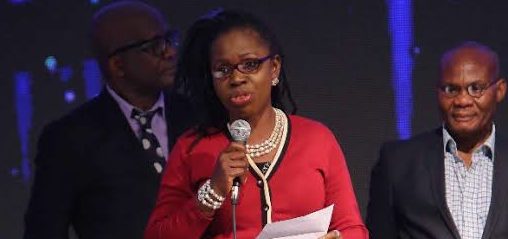In the midst of stiff competition in the media, stakeholders have been charged to move with the current trend of the convergence culture train.
Head, Department of Mass Communication, University of Lagos, Prof. Abigail Ogwezzy-Ndisika, gave the charge to Nigerian Guild of Editors, NGE, in her keynote presentation during the editors’ 2019 Biennial Convention at Lagos Airport Hotel, Ikeja on Saturday.
Ogwezzy-Ndisika who spoke on the Theme: Media convergence as strategy for survival, said media professionals that are not willing to move with the current dispensation of the convergence culture train will not survive under the contemporary dispensation.
She said that the media houses that have been weathering the storm today were those that have found a way of ensuring that they get acquainted with the latest trends and remodelled their strategy towards making the best out of these trends.
She said there was need for media houses to take the initiative, be proactive, collaborate and develop media products.
Ogwezzy-Ndisika also stressed the need for newsrooms to gravitate towards improving their technology bases for times ahead, noting that with the interplay between journalism and technology, it was likely that a computer will ‘win the Pulitzer Award’ very soon.
“The earlier editors begin to understand the current realities and step up their game, the better. There are still some media practitioners that wave this trend and continue to rely on traditional means of news collection, production and dissemination. Anyone still in the cadre can only be living in a filter bubble waiting to burst.
“Hence, the need for editors and managers to be innovative, proactive and dynamic in their approach; there is no end to learning. There is room for learning of these tools as well as the inclusion of technology-savvy digital natives in handling how the Nigerian media works,” she said.
According to her, the theme of the convention embodies a whole lot of truth and a clarion call for stakeholders in the media industry to know the truth.
She said, “There is a need to tell the naked truth about the media industry. The era of living in self-denial is over and media stakeholders must begin to embrace the objective reality even as we brace up to make the best out of it.
“I make bold to say that media convergence will not only keep the media surviving; it also has the potential to make the media industry thrive beyond all reasonable doubts. In Nigeria, most media houses are yet to understand this truth, hence the retrenchment of staff, poor remuneration, shallow content production as well as failure to perform its watchdog function.
“It is important to note that surviving media houses today are those that have found a way of ensuring that they get acquainted with the latest trends and remodelled their strategy towards making the best out of these trends.”
She said that the media in Nigeria had come of age and that there was need to set a new course of action for the industry.
READ ALSO: Osinbajo, Ambode Task Editors on Positive Reportage
“With seven months left to hitting the 160-year-mark since the inception of IweIrohin fun awonEgbaati Yoruba in Abeokuta by Rev. Henry Townsend, of the Church Missionary Society, the Nigerian media industry has come of age for a new course to be set.
“Therefore, this keynote paper seeks to set the tone for that new course as well as guide the discussion during this convention. It is important to note that the topic of media convergence is not a buzzword but it is our present day reality. Hence, there is need to stimulate conversation in this area as well as get started on making it happen in our different media establishments and in the industry in general,” Ogwezzy-Ndisika said.
“The word convergence is synonymous with words such as: intersectional, interplay and hybridity. We conceptually mean that through convergence, the media space with the advancement in technology, culture and economy continually alters the relationship between media consumers and producers.
“In this day and age, former consumers (fan community, readership base, followers of news) have become powerful to the extent that they are fellow purveyors of information. Much more, these fellow producers have become participants in this media space.
“On the other hand, the media consumers (now producers and participants), are as well trying to understand the intricacies of being bombarded with several alluring media technologies all fighting for attention. This continuous battle is all thanks to the activities of platform capitalists such as Facebook, Twitter, Google, Netflix, Youtube, LinkedIn, Amazon and the likes.
“These companies are altering the journalism business. In fact, they continue to reposition to ensure that every member of its community need not leave its platform to do anything. From reading of books, to consuming of news to even purchasing of household appliances, these platform capitalists are taking up the attention of the media industry’s target audience. Much more, digital advertising is the order of the day,” she said.












